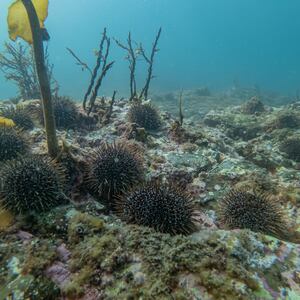World
New Law Enhances Hauraki Gulf Protections Despite Fishing Exemption

Legislation aimed at enhancing marine protections in the Hauraki Gulf has successfully passed its third reading in the New Zealand Parliament. The new law, known as the Tīkapa Moana Marine Protection Bill, has sparked debate due to a late exemption allowing commercial ring-net fishing in certain high protection areas.
The bill is a culmination of ongoing efforts to safeguard the Hauraki Gulf, which has faced significant environmental challenges due to human activities. It expands two existing marine reserves, where any removal of marine life is strictly prohibited, and establishes five seafloor protection areas (SPAs). Within these SPAs, notable restrictions will prevent significant disturbances to the ocean floor.
Key Provisions of the Bill
One of the most significant aspects of the Tīkapa Moana Marine Protection Bill is the creation of 12 high protection areas (HPAs). These zones will impose strict limitations on various activities, including most forms of commercial and recreational fishing. The intent behind these protections is to foster recovery and sustainability in marine ecosystems, which have been under pressure for years.
Despite the positive reception from environmental advocates, the bill’s provision allowing for commercial ring-net fishing in some protected zones has faced criticism. Opponents argue that this carve-out undermines the very purpose of the HPAs and may compromise the ecological integrity of the Gulf.
The legislation not only aims to enhance marine biodiversity but also reflects a growing awareness of the need for sustainable management of natural resources. The push for stronger protections has been supported by various stakeholders, including local communities and environmental groups, who have long advocated for the preservation of the Hauraki Gulf’s unique ecosystems.
Looking Ahead
As the Tīkapa Moana Marine Protection Bill moves forward, its implementation will be closely monitored. The effectiveness of the HPAs and SPAs in achieving their conservation goals will be a focal point for both supporters and critics. The ongoing dialogue surrounding fishing practices in these protected areas highlights the complex balance between economic interests and environmental stewardship.
The passage of this legislation marks a significant step in New Zealand’s commitment to marine conservation, but it also underscores the challenges in reconciling diverse stakeholder interests. As the country navigates these waters, the hope is that the new protections will lead to a healthier and more resilient Hauraki Gulf for future generations.
-

 World3 months ago
World3 months agoTest Your Knowledge: Take the Herald’s Afternoon Quiz Today
-

 Sports3 months ago
Sports3 months agoPM Faces Backlash from Fans During Netball Trophy Ceremony
-

 Lifestyle3 months ago
Lifestyle3 months agoDunedin Designers Win Top Award at Hokonui Fashion Event
-

 Sports3 months ago
Sports3 months agoLiam Lawson Launches New Era for Racing Bulls with Strong Start
-

 Lifestyle3 months ago
Lifestyle3 months agoDisney Fan Reveals Dress Code Tips for Park Visitors
-

 World3 months ago
World3 months agoCoalition Forms to Preserve Māori Wards in Hawke’s Bay
-

 Health3 months ago
Health3 months agoWalking Faster Offers Major Health Benefits for Older Adults
-

 Politics3 months ago
Politics3 months agoScots Rally with Humor and Music to Protest Trump’s Visit
-

 Top Stories3 months ago
Top Stories3 months agoUK and India Finalize Trade Deal to Boost Economic Ties
-

 World3 months ago
World3 months agoHuntly Begins Water Pipe Flushing to Resolve Brown Water Issue
-

 Entertainment3 months ago
Entertainment3 months agoExperience the Excitement of ‘Chief of War’ in Oʻahu
-

 Science3 months ago
Science3 months agoNew Interactive Map Reveals Wairarapa Valley’s Geological Secrets









